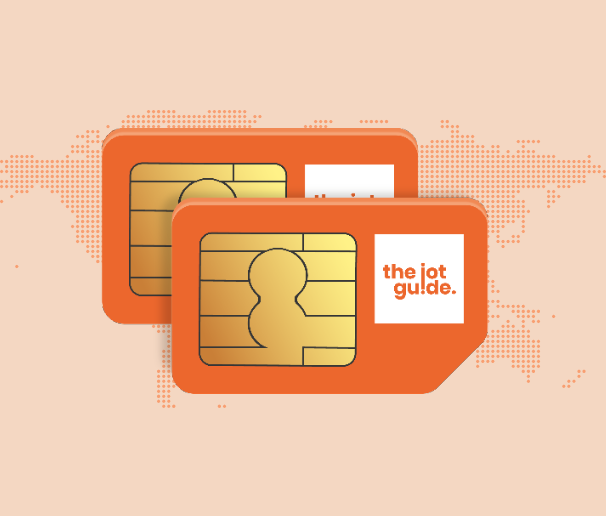With the increasing adoption and complexity of IoT, managing connectivity costs for thousands of devices has become a pressing issue for businesses.
Now how is this related to pooled data? As you can imagine, having thousands of SIM cards with traditional data bundles would result in many devices using either more or less data than the bundles provide. Which results in two problems:
This is true for both prepaid and postpaid data bundles due to limited validity. Out of the need to optimise connectivity management and reduce costs, the concept of pooled data was created.
What is pooled data?
Instead of having a fixed data bundle per SIM, pooled data bundles are tied to multiple SIMs, and aggregate the data across the SIM pool. So instead of having 10 SIM cards with each 50MB, you have a pool of SIM cards that share 500MB.
Devices with higher data usage can benefit from the unused data of those with lower usage. This way, usage variability across devices can be better managed to save cost and increase efficiency.
What is the difference between pooled data packages and a pooled wallet?
At the IoT Guide, we work with a pooled wallet that uses a rechargable wallet credit. As opposed to working with pooled bundles with fixed data or SMS, the wallet works with a prepaid credit that is expressed in currency. The usage is then deducted from this credit.
This flexible system ensures that credits remain active as long as the wallet is in use, making it ideal for businesses that need to scale or manage multiple types of SIMs without worrying about data expiration or fixed limitations.
Choosing the right pooled data plan
Choosing the right pooled data plan requires careful assessment of your business’s data needs in terms of number of devices, usage variability, and potential future changes.
When comparing different providers, make sure to examine their pricing, flexibility, hidden costs (like overage charges, monthly minimum usage per SIM etc.), technical specifications and network coverage. Choose a provider with transparent pricing, flexibility and a solution that fit your needs.
What are the benefits of data pooling?
By using pooled data, businesses can lower expenses, improve scalability, and optimise their operations. The benefits of data pooling include:
- Cost Efficiency: Data pooling reduces the financial impact of unused data and data overage through improved resource allocation.
- Scalability:
A solution with pooled SIMs makes it easy to add or remove devices, and thus improves scalability. - Real-Time Management: Pooled SIM cards in combination with a SIM Management Portal enables real-time usage tracking across data consumption and more efficient resource allocation.
- Simplified Billing: Pooled data with consolidated billing, can simplify financial management.
What are the challenges and considerations of data pooling?
- Data Usage Monitoring: It’s important to carefully monitor data usage to prevent exceeding the pool limit. We advise to employ rules that limit the data usage of a single SIM in case of malfunctioning or a security breach.
- Management Tools: It’s crucial to have an intuitive platform for managing pooled SIMs and IoT devices. Some important features to consider include the option to employ rules and automations, as well as having real-time usage tracking.
Partnering with the IoT Guide to optimise connectivity costs
In an increasingly connected world, managing IoT connectivity costs efficiently can make all the difference. Explore the benefits of pooled data and wallets to see how they can optimize your business and reduce overhead costs. Evaluate your current connectivity setup today and consider whether a flexible, real-time solution is the key to your business’s success.
Our Pooled Data Solution
1. Pooled IoT Wallet or Pooled Prepaid Bundle
2. Real-time, in-session data control through our intuitive SIM Management Portal
3. White-labeled solution, standard or custom
4. Self-service analytics, track your usage statistics to improve decision-making
Our pooled data solution, empowers your business and gives you complete control over connectivity management while saving on data costs.
Conclusion
In today’s complex IoT landscape, managing connectivity costs for thousands of devices is challenging, with traditional data bundles often leading to overpayment for unused data or unexpected charges for overages. Pooled data and prepaid IoT wallets provide a flexible and scalable solution, allowing businesses to share resources across devices and optimize costs. With real-time control, transparent billing, and a flexible system that prevents credit expiration, businesses can enhance efficiency and simplify management. However, the key to success lies in selecting the right provider, one that offers transparent pricing, strong management tools, and the flexibility needed to meet evolving data demands.
Curious? Contact us for more information on the possibilities of pooled data.

